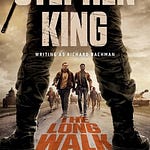Thank you to everyone who tuned into my live video! Paid Monthly Members get comprehensive ongoing discussion of this masterpiece textbook:
If you want the benefit of explaining these and other principles to the max, using the 15 courses offered you with unlimited access as long as you are among monthly member:
My articles for Dr John Barry and the Centre for Male Psychology:
Be sure to also see John explain his own discoveries, here:
SHOW NOTES:
Introduction: Join Dr. Paul as he delves into the groundbreaking "Palgrave Handbook of Male Psychology and Mental Health." This comprehensive textbook challenges traditional perspectives on male psychology, offering evidence-based insights and innovative therapeutic approaches tailored for men.
Get the textbook on Amazon, here:
Key Highlights:
Rare and Essential Resource: Dr. Paul emphasizes the rarity and importance of this textbook, which is the first of its kind to comprehensively address male psychology.
Innovative Therapeutic Approaches: The book proposes male-friendly therapies that are action-oriented and goal-driven, catering to the unique psychological needs of men.
Visual depiction:
Biological and Psychological Insights: Explore the complex interplay of biological, psychological, and social factors in male mental health, including the impact of testosterone and brain structure differences.
Critique of Toxic Masculinity: Dr. Paul discusses the book's critique of the concept of toxic masculinity, highlighting its lack of scientific rigor and potential harm to male mental health.
Importance of Fatherhood: The book underscores the crucial role of fathers in child development and the unique contributions they make to family dynamics.
Male Mental Health Crisis: Addressing the alarming statistics on male suicide rates, the book offers solutions to better understand and support men facing mental health challenges.
Educational and Societal Factors: Dr. Paul explores the educational challenges boys face and the societal norms that shape male experiences, emphasizing the need for supportive frameworks.
In Dr. Paul’s review of The Palgrave Handbook of Male Psychology and Mental Health, he highlights the significance of the book as the first comprehensive textbook on male psychology. He emphasizes that this work addresses a critical gap in understanding male mental health, which encompasses less than half the global population. The handbook challenges traditional views of male psychology, providing evidence-based research that integrates biological, psychological, and social factors.
Key insights from the handbook include:
1. Complex Role of Testosterone: Testosterone’s influence on behavior is multifaceted, affecting men through direct biological effects and social feedback. Research, particularly concerning women with polycystic ovarian syndrome (PCOS), illustrates that testosterone impacts psychological outcomes via various mechanisms, including prenatal exposure which shapes brain development.
2. Nuanced Understanding of Male Mental Health: The book proposes that males often require different therapeutic approaches due to their distinct psychological needs. Traditional models of therapy may not adequately serve male clients, who tend to benefit more from action-oriented, goal-focused therapies.
3. Innovative Therapeutic Approaches: It advocates for developing male-friendly therapeutic methods to enhance the effectiveness of psychological service delivery, ensuring that therapies align with male clients' goals and motivations.
Dr. Paul underscores the importance of the handbook as a groundbreaking resource that expands current knowledge and offers practical insights into male psychology, making it essential reading for both professionals in the field and anyone interested in understanding male mental health better.
Conclusion: Dr. Paul concludes with a call to action for mental health professionals to adopt evidence-based, compassionate approaches that align with male psychological characteristics. He highlights the book's potential to transform therapeutic practices and improve outcomes for men worldwide.
Additional Resources:
Related Books: "The Boy Crisis" by Warren Farrell and John Gray, and "Perspectives in Male Psychology: An Introduction." Further Reading: Dr. Paul's articles on male psychology at The Centre for Male Psychology’s Magazine.













